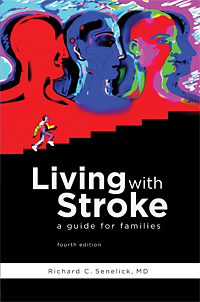To Blog or Not to Blog?
Victoria Dunckley, MD first started blogging on her own website to share information with patients and parents. When she moved her integrative psychiatry practice and opened a new office in Los Angeles, the blog helped her grow the practice. The blog also brought in consultation work with patients from all over the country, and has led to expert witness work, as well.
The posts on her blog eventually evolved into ideas for a book. When I first met Dr. Dunckley and began working with her, I suggested she pitch a blog column to Psychology Today as a way to increase her reach and national impact and meet her goal of "increasing awareness about the ill effects of screen-time."
It would also help make her book proposal for her book, Reboot Your Child's Brain, more attractive to agents and publishers. She did so and the result is her Mental Wealth Column on PsychologyToday.com.
At first, she blogged tangentially about her book topic with posts on topics such as misdiagnosed bipolar disorder, how electronic screens can contribute to tics and 10 rules for safer cell phone use, so as not to give away all the information in her upcoming book. However, over time, she began to blog more specifically about electronic screens and their effects on children's brains and mental health--including what she has termed "electronic screen syndrome."
Indeed, her high profile blog posts contributed to landing a top agent and a book deal with New World Library for Reboot Your Child's Brain. Even before that book comes out, though, her blog has already helped her have a powerful impact. Dr. Dunckley reports, "I've received emails from people all over the world telling me how a particular article has helped them. Those emails make all the effort worth it! Blogging has also helped sharpen my writing skills and has led to supportive connections with like-minded individuals."
So, should you be blogging? Here are some reasons to blog and a few reasons not to:
Reasons to blog:
1. Blogging can help you reach a large group of people with your ideas and make an impact.
2. Blogging can help hone your writing skills.
3. By inviting comments you can find out more about how your audience/readers think and what they want to read about.
4. Comments and other responses to your blog can help you clarify your own ideas, explore new avenues or see things differently.
5. Your blog can attract a large audience of fans who are then interested in buying your books, attending your seminars or hiring you as a consultant.
6. Your blog can attract media attention: more and more the media are finding experts for radio and TV shows through searching the web. Your blog helps them find you as search engines like Google love CONTENT and your blog is full of relevant content.
7. Your blog can attract patients or clients to your medical practice or business. Again, search engines like Google are looking for websites with lots of relevant content. Websites with extensive blogs and tagged with appropriate "keywords" win out on Google.
8. Publishers LOVE authors who blog, especially if you are reaching a large audience.
9. Blog posts can be short--less time cnosuming than writing a magazine article, for instance.
10. Blogging is a great way to be viewed as a thought leader--and rightly so.
So, why wouldn't you blog?
a. Blogging takes some time. You will need to figure out where that time will come from and schedule it in for blogging to work.
b. You don't get paid. Sure, some people have ads on their blogs, but that can detract. In general, you don't get paid directly for blogging.
c. You may need to learn a few new skills--beyond writing, you'll need to learn wordpress and get some sense of how search engines work so you can make your posts "discoverable" on search engines like Google.
d. You'll want to blog with some consistency or it's harder to develop a consistent following of readers.
I hope none of these reasons deter you. Basic blogging skills can be learned in a day and the benefits are many--to your medical practice, your business and your own personal satisfaction.
If you want to learn more about blogging and other forms of reaching the public with your medical knowledge, join me at Harvard Medical School's CME course on writing and publishing: Achieving Healthcare Leadership and Outcomes through Writing and Publishing March 31-April 2 atthe Fairmont Copley Hotel in Boston, MA.
There, doctors who are also bloggers and published authors, as well as agents, acquisitions editors and other experts in the publishing industry, will guide you in the many writing opportunities available to doctors and others in the health professions. You'll also have many opportunities to share your ideas with us one-on-one and receive guidance for navigating this exciting arena.





 Post a Comment
Post a Comment



